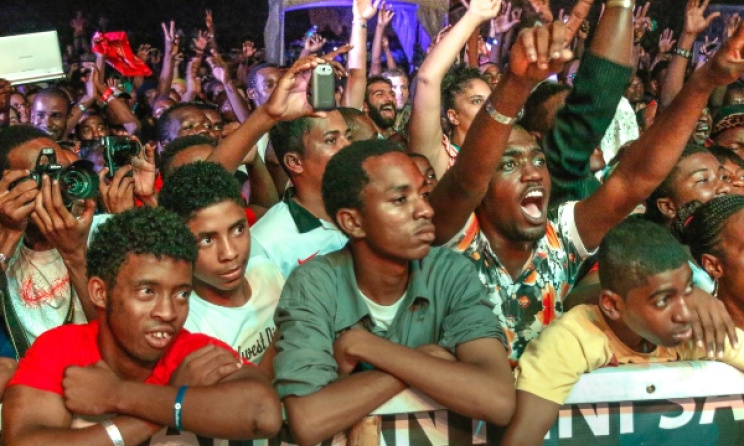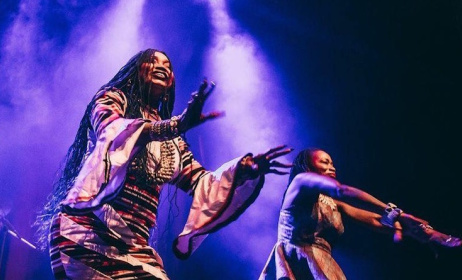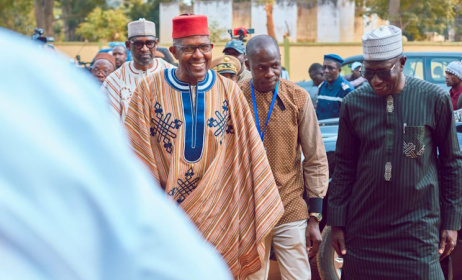With no Sauti za Busara, will February still be Zanzibar’s busiest month?
Year after year, Sauti za Busara drew growing crowds to the country and was seen as an integral part of the annual calendar of events for both Zanzibar and Tanzania as a whole. However, the cancellation of the 2016 edition of the annual festival is a damning indictment of ‘official' Tanzania’s failure to support the local music scene. Clearly, the development of the arts sector in Tanzania is being constrained by a lack of government and private support.
While many would have been looking forward to this year's event, usually held in the second week of February, the lack of goodwill from local officials to support the event proved the key factor in its cancellation this year. According to the organizers, not only did the festival not get any form of funding from the government, but the organizers were requested to pay a lot of money every year for registration, licenses, permits, visas and taxes. So rather than the government helping to build a successful event and keep it alive to promote cultural tourism, local authorities apparently did the opposite and were instrumental in the festival's cancellation.
This is despite the fact that the economic benefits of the festival are quite evident. Conservative estimates say since 2004 the festival generated US$70 million in revenues for Zanzibar. The month of February had become the island nation's most popular and lucrative month for tourism, largely due to the festival. Zanzibar Commission for Tourism statistics showed the numbers of visitors to the islands during February increased every year, from 3 000 during 2004 (when the first edition of the festival took place) to 40 000 in recent years. Hoteliers, restaurant managers, taxi drivers and traders confirm that Busara week is their busiest time of year. Equally importantly, the festival was instrumental in providing much-needed work and training opportunities.The festival provided employment annually for 400 artists and 150 production crew, with an estimated further 2 000 jobs created indirectly for Tanzania’s wider tourism sector. It was also instrumental in developing skills by holding artistic and technical seminars.
Now, without the festival, it remains to be seen whether or not this trend will continue this February...
The festival's founder and director, Yusuf Mahmoud of Busara Promotions, explained: “Selling tickets was never a problem, but these cover only 30% of festival costs. For Sauti za Busara to continue sustainably, we need to develop long-term partnerships with the government, international donors and business sponsors who share our vision."
'Tragic' loss for local music and tourism industries
Commenting on the cancellation of the festival in 2016, celebrated musician and leader of Zanzibar’s Tausi Women’s Taarab group Maryam Hamdani said the cancellation was a blow to artists. “Sauti za Busara festivals are vital to us as musicians as well as music lovers. Over the years Busara has promoted us and made us stronger as we get to show our abilities. We learnt a lot from meeting different musicians. We gained a lot from the various workshops and encounters with musicians and journalists from all over the world. It’s really a pity and we shall miss all these important activities in 2016," said Hamdani, adding that she hopes funders will reconsider so that Busara can resume in 2017.
Local tourism operators have also come out in support of the event. Julia Bishop, a Matemwe hotelier and former director of the Zanzibar Association of Tourism Investors (ZATI), commented: “It's tragic that an event that brings so much to the culture and people of Zanzibar has to be cancelled because of the lack of a relatively small amount of financial sponsorship. Where are the governments, companies and organisations who say they care about development, and who need a high profile marketing platform? This is the single most successful long-standing event in Zanzibar, showcasing musical talent from all over Africa and beyond.”
Thankfully, the cancellation of the 2016 edition does not appear to have discouraged Sauti za Busara's organizers. Instead they are exploring options to come up with a better and a strategically planned event with a more sustainable business model and a variety of mutually beneficial, long-term partnerships.
Many arts and cultural projects in Tanzania and other African countries still rely heavily on support from tourists, the local elite and expatriates. As has been suggested in the past, it's high time for African governments to recognise the cultural industries as key drivers of economic development, and to prioritize arts and culture by putting their money where their mouth is.
































Commentaires
s'identifier or register to post comments